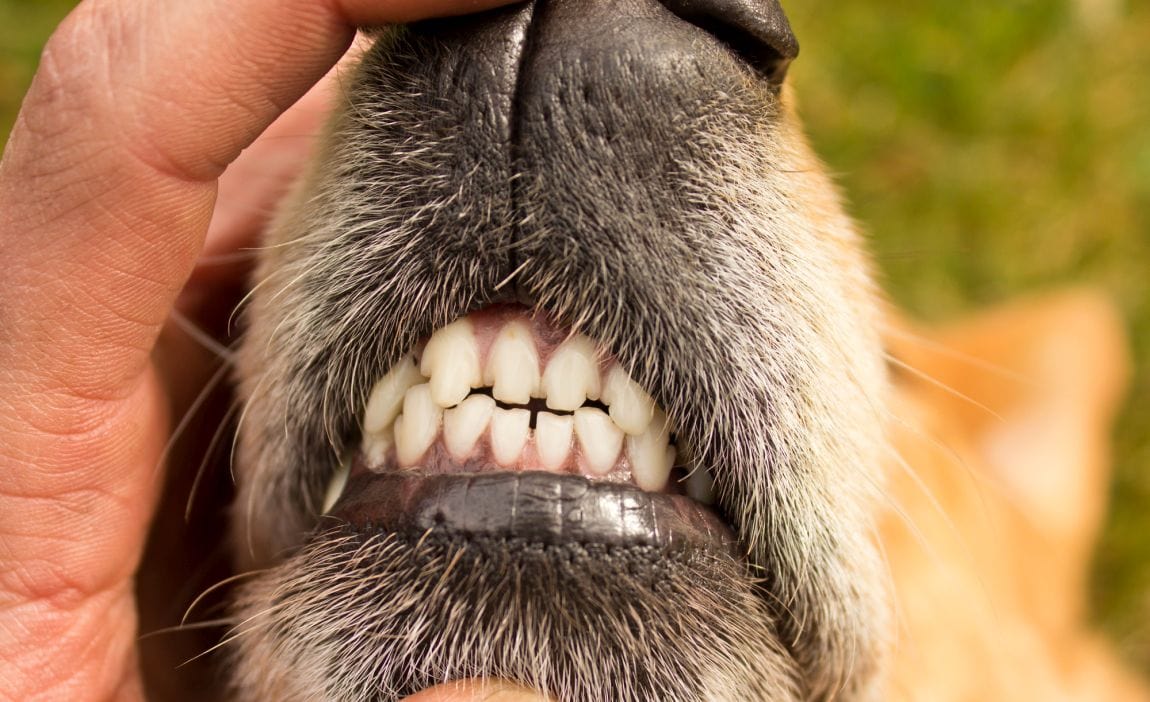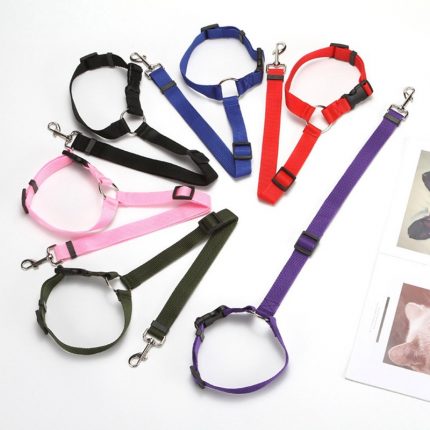Why is My Dog Grinding His Teeth?
As a dog owner, it can be concerning to witness your furry friend grinding their teeth. Teeth grinding, also known as bruxism, is not a behavior that should be ignored. It can indicate underlying health issues or discomfort that your beloved pet may be experiencing. Understanding why dogs grind their teeth is crucial in order to provide them with the necessary care and alleviate any potential pain or discomfort they may be enduring.
There can be various reasons why your dog is grinding their teeth. One common cause is dental problems. Just like humans, dogs can suffer from dental issues such as tooth decay, gum disease, or misalignment. These conditions can lead to discomfort, pain, and ultimately result in teeth grinding. Regular dental check-ups and proper oral hygiene can help prevent these problems and ensure your dog’s dental health.
Stress and anxiety can also contribute to teeth grinding in dogs. Just like humans, dogs can experience stress due to various factors such as changes in their environment, separation anxiety, or fear. Teeth grinding can be a coping mechanism for dogs to release tension and alleviate stress. Identifying the source of stress and providing a supportive and calm environment can help reduce teeth grinding in these cases.

Another possible cause of teeth grinding in dogs is pain or discomfort in other parts of their body. Dogs may grind their teeth as a response to pain in their jaw, ears, or even their stomach. It’s important to observe your dog’s behavior and look for any signs of discomfort or illness. If teeth grinding persists or is accompanied by other concerning symptoms, it’s advisable to consult with a veterinarian to rule out any underlying medical conditions.
While occasional teeth grinding may not be a cause for immediate concern, persistent or excessive grinding should not be ignored. It’s essential to address the underlying cause of teeth grinding to ensure your dog’s overall well-being and prevent any potential complications.
In the following sections, we will delve deeper into the main causes of teeth grinding in dogs and provide practical recommendations to help alleviate this behavior and ensure your dog’s optimal oral and overall health.
Understanding the Causes of Teeth Grinding in Dogs
Teeth grinding, or bruxism, in dogs can be a perplexing behavior for pet owners. To address this issue, it is important to explore the various potential causes behind why dogs grind their teeth. By understanding the underlying reasons, we can take appropriate measures to ensure our furry companions’ well-being.
Dental Problems
One of the primary reasons for teeth grinding in dogs is dental problems. Just like humans, dogs can suffer from tooth decay, gum disease, or misalignment, leading to discomfort and pain. When dogs experience dental issues, they may grind their teeth as a response to the pain or irritation. Regular dental check-ups, professional cleanings, and maintaining good oral hygiene through brushing can help prevent these problems and alleviate teeth grinding.
Stress and Anxiety
Stress and anxiety can manifest in various ways in dogs, and teeth grinding can be one of them. Dogs may grind their teeth as a coping mechanism to release tension and alleviate stress. Common stressors for dogs include changes in their environment, separation anxiety, or fear-inducing situations. It is crucial to identify the source of stress and provide a supportive and calm environment for your furry friend. Engaging in activities that promote relaxation, such as regular exercise, mental stimulation, and positive reinforcement training, can help reduce teeth grinding caused by stress and anxiety.
Pain or Discomfort
Teeth grinding can also be a response to pain or discomfort in other parts of a dog’s body. Dogs may grind their teeth if they are experiencing jaw pain, ear infections, or even gastrointestinal issues. It is important to pay attention to any signs of discomfort, such as changes in appetite, excessive drooling, or reluctance to chew. If teeth grinding persists or is accompanied by other concerning symptoms, it is advisable to consult with a veterinarian to identify and address the underlying cause of the pain or discomfort.
Malocclusion
Malocclusion, or misalignment of the teeth, can also contribute to teeth grinding in dogs. Some breeds are more prone to dental abnormalities, which can lead to discomfort and grinding. If your dog has a misaligned bite or overcrowded teeth, it can cause uneven wear and tear, resulting in the grinding of teeth. Regular dental examinations by a veterinarian can help identify any malocclusion issues and provide appropriate treatment or intervention.
Practical Recommendations to Address Teeth Grinding
While occasional teeth grinding may not be a cause for immediate concern, persistent or excessive grinding should be addressed to ensure your dog’s well-being. Here are some practical recommendations:
1. Regular Dental Care
Ensure your dog receives regular dental check-ups and professional cleanings. Brushing your dog’s teeth regularly with veterinarian-approved toothpaste and providing dental chews or toys can help maintain good oral hygiene and prevent dental problems that may lead to teeth grinding.
2. Stress Management
Create a calm and supportive environment for your dog. Identify and minimize stressors, provide ample mental and physical stimulation, and consider using tools such as anxiety wraps or pheromone diffusers to help reduce stress and anxiety levels.
3. Pain Management
If your dog is grinding their teeth due to pain or discomfort, consult with a veterinarian to identify and address the underlying cause. They may recommend pain medication, dietary changes, or other interventions to alleviate your dog’s discomfort.
4. Malocclusion Treatment
If malocclusion is the cause of your dog’s teeth grinding, your veterinarian may recommend orthodontic treatment or extraction of problematic teeth to alleviate discomfort and prevent further complications.
Conclusion
In conclusion, understanding why your dog is grinding his teeth is crucial for maintaining their overall health and well-being. For more in-depth insights and tips on this topic, consider exploring our comprehensive guide at geepets.com. This resource is tailored to help pet owners identify the reasons behind this behavior and offers practical solutions for addressing it.

Additionally, for further reading on dog health and behavior, the American Kennel Club (akc.org) offers a wealth of information on a variety of topics that can assist in ensuring your furry friend leads a happy, healthy life. Both of these resources can provide valuable information to help you understand and mitigate the issue of your dog grinding his teeth.
Actionable Recommendations to Address Teeth Grinding in Dogs
1. Regular Dental Care
Ensure your dog receives regular dental check-ups and professional cleanings. This will help identify and address any dental problems that may contribute to teeth grinding. Additionally, establish a routine of brushing your dog’s teeth with veterinarian-approved toothpaste to maintain good oral hygiene. Provide dental chews or toys that promote chewing and help prevent plaque buildup.
2. Stress Management
Identifying and minimizing stressors in your dog’s environment is crucial, especially if you’re pondering, “Why is my dog grinding his teeth?” This behavior can often be a sign of stress or anxiety in your furry friend. To create a calm and supportive atmosphere and address the concern of “Why is my dog grinding his teeth,” providing a comfortable and secure space is essential. Engage in regular exercise and mental stimulation activities to help reduce stress levels, which can be a contributing factor to the question, “Why is my dog grinding his teeth?”
Furthermore, consider using anxiety wraps or pheromone diffusers to provide additional support and relaxation, especially if you find yourself repeatedly asking, “Why is my dog grinding his teeth?” These tools can help create a more serene environment and mitigate the factors that lead to teeth grinding. By addressing the underlying stressors that may be causing your dog discomfort, you can help alleviate the symptoms and find a resolution to the concern, “Why is my dog grinding his teeth?” This approach ensures your dog’s well-being is prioritized, reducing stress-induced behaviors and promoting a happier, healthier life for your pet.
3. Pain Management
If you find yourself asking, “Why is my dog grinding his teeth?” it may be a sign of pain or discomfort in your canine friend. Consulting with a veterinarian is a crucial step to determine the underlying cause of why your dog is grinding his teeth and to develop an appropriate treatment plan. The question, “Why is my dog grinding his teeth?” can often lead the veterinarian to consider various health issues that might be causing your dog discomfort.
In response to “Why is my dog grinding his teeth?”, the veterinarian may recommend pain medication, dietary changes, or other interventions to alleviate your dog’s discomfort. It’s important to follow their guidance closely to ensure effective pain management for your dog. Addressing the concern of “Why is my dog grinding his teeth?” promptly can significantly improve your dog’s quality of life by resolving any pain or discomfort they may be experiencing.
4. Malocclusion Treatment
5. Monitor and Observe
Keep a close eye on your dog’s behavior and any changes in their teeth grinding patterns. Note any accompanying symptoms such as changes in appetite, excessive drooling, or difficulty in chewing, which could lead you to wonder, “Why is my dog grinding his teeth?” Regularly examine your dog’s teeth and gums for signs of dental issues or abnormalities, as this could provide clues to the question, “Why is my dog grinding his teeth?” If you notice persistent or worsening teeth grinding, a situation that brings you back to the question, “Why is my dog grinding his teeth?” seek veterinary advice promptly.

Addressing the concern, “Why is my dog grinding his teeth?” involves observing for any stressors or health issues that might be causing discomfort. The repetition of the query, “Why is my dog grinding his teeth?” emphasizes the importance of understanding the root cause behind this behavior. Whether the grinding is due to dental discomfort, anxiety, or an alignment issue, identifying the reason is crucial. By focusing on the question, “Why is my dog grinding his teeth?” you’re taking an important step in ensuring the health and well-being of your furry friend.
6. Maintain a Balanced Diet
Ensuring your dog is on a balanced and nutritious diet that supports their overall health, including dental health, is crucial. When pondering, “Why is my dog grinding his teeth?”, it’s essential to consult with a veterinarian to determine the most appropriate diet for your dog’s specific needs. Incorporating dental-friendly treats or food additives that promote oral health can help prevent dental problems. If you’re asking yourself, “Why is my dog grinding his teeth?”, it could be a sign of underlying health issues, which a proper diet might mitigate.
Therefore, addressing the question, “Why is my dog grinding his teeth?” involves not only looking into their current diet but also ensuring it’s enriched with nutrients that support oral health. This approach can play a significant role in alleviating concerns related to “Why is my dog grinding his teeth?” by promoting a healthier lifestyle and preventing potential dental issues before they become more serious.
7. Professional Guidance
If you are uncertain about the cause or appropriate management of your dog’s teeth grinding, seek professional guidance from a veterinarian or veterinary dentist. They have the expertise to diagnose and treat dental issues and provide tailored recommendations for your dog’s specific situation.
Remember, addressing teeth grinding in dogs requires a comprehensive approach that includes regular dental care, stress management, pain management, and appropriate treatment for underlying issues. By implementing these actionable recommendations, you can help alleviate your dog’s teeth grinding and ensure their optimal oral and overall health.















